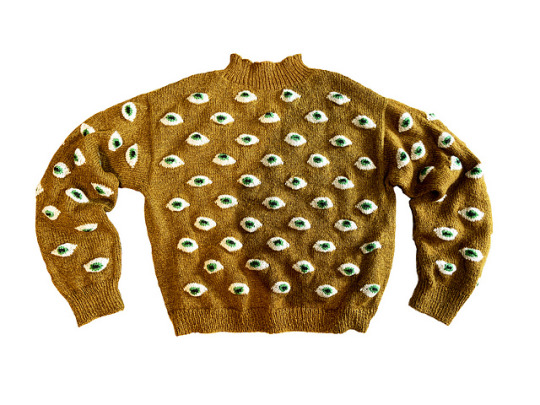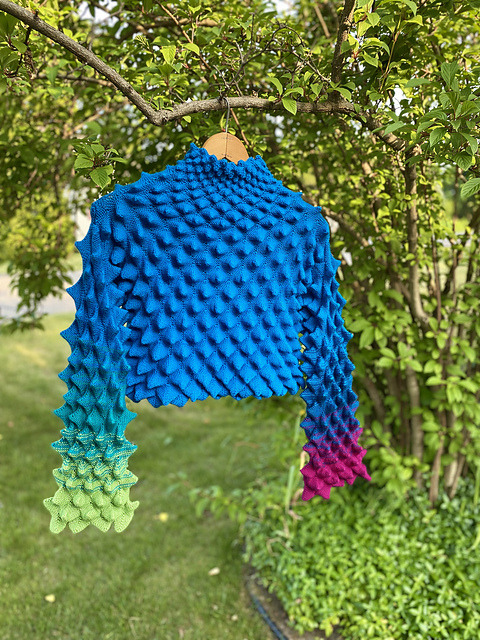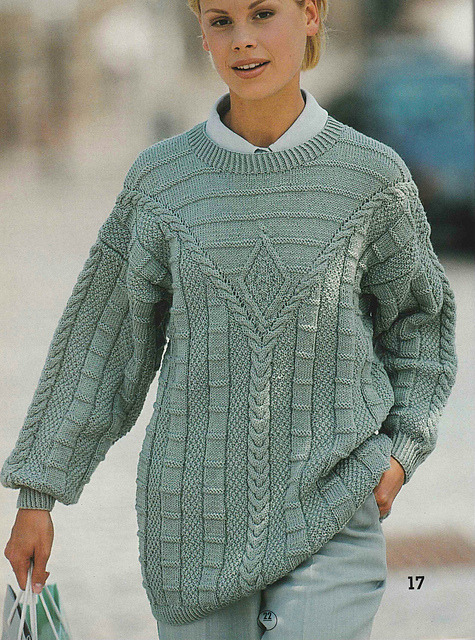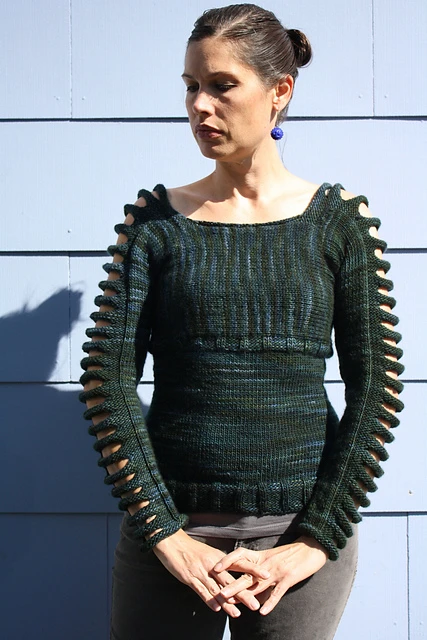#i was thinking more sci fi elements
Text
Still enjoying Baldur's Gate 3. My spouse is interested in the game too, though I think it's unlikely that he'll be able to get into it. He doesn't have much experience with turn based tactical games, and I think that ultimately the high level of complexity in BG3 is going to be a barrier to entry.
I can't even advise him to play an easy character like a fighter because you have to control every action taken by every member of your squad. Sometimes he watches me during combat and whenever I open up the action wheel and scroll through literally dozens of choices he's like "...this looks really complicated".
He loves Dragon Age, but honestly that series is far simpler to get into. It does have a lot of granularity in its tactical options, but you can also just choose to lower the difficulty and let the AI control your teammates and you can do just fine.
#honestly if I did not already have some experience with D&D 5e I think this game would be too complex for me#I think a better game to get him into turn based tactics would be X Com Enemy Unknown#he's more into sci fi than fantasy anyway and I think he'd love the base management aspect#but it does crucially lack romance elements#at least outside of my fevered imagination#video games#Dare Original
56 notes
·
View notes
Text
Is the Dwampyverse Sci-Fi?
Like specifically Phineas and Ferb and Milo Murphy's Law.
There's a main plot line with time travel.
They regularly use space travel.
Overall, they use (and create) technology slightly more advanced than what we have today.
Doesn't that make it sci-fi?
Edit: Actually I just looked it up, according to Wikipedia it's science fantasy. Which is pretty accurate. I just never thought about it before.
#I mean technically genres are just broad categorizations that inherently overlap#and it definitely has sci fi elements#so it's definitely science fiction#but is it Science Fiction? idk#it also has some fantasy#in like Klimpaloon#and the Vampire thing#but it's definitely more sci-fi#dwampyverse#phineas and ferb#pnf#mml#milo murphy's law#The real question is should I be allowed to analyze this in the context of the sci-fi genre#I am asking if I should but I probably will regardless of whether I should or not#actually come to think of it#hamster and gretel#falls into sci-fi too#because the source of their powers are aliens#and their non-alien related villains#use technology
46 notes
·
View notes
Text

Bioluminescent cave-bun-creatures! Some preliminary concept sketches I threw together and prettied up in Clip Studio back in August, both to push my creature design skills and as a bit of a tailored portfolio piece.
I plan to draw more of them eventually, and already have some modifications in mind. (Ex: making their feets more dextrous and less blunted.)
Also inspired partly by the absolutely amazing work of @ / jayrockin! If you haven't seen their work before and enjoy speculative biology or sci-fi worldbuilding, you should absolutely go give 'em a look.
Note transcripts below cut!
From left to right, top to bottom:
Subterranean Earth fauna are largely blind...but in a different world, wildlife could use bioluminescence instead, like earth deepsea creatures.
Cartiliginous fans with large bioluminescent "eyes"; these act as both a distraction and an intimidation tactic (caterpillar style ;D)
Fans regrow easily and are designed to be lost. They can also be angled or waved, -> and folded backward to accommodate tight spaces.
Tapetum lucidum [in eyes], to take advantage of other organisms' bioluminescence.
Neck can turn 180 degrees, like owls
Insectivore
Small teeth, but sharp; resemble possum teeth
Paw pads are "sticky", in the same way as gecko's; this is mostly for traction, though, and can't facilitate hardcore climbing
Claws assist with traction in slippery cave environs
Conflicts are brutal - fights for territory or mating rights focus on damaging the fans, as without them an individual's chances of survival decrease
Behavior overall is reclusive, but dauntless.
While they rely heavily on their fans first, when push comes to shove, they have a reputation for being recklessly bold.
#speculative biology#animals#cave animals#design#sketchbook tag#...still hoping that studio will have another opening someday >u>#learning about the term specbio was wild bc it's like. oh. is that the name for it?#I usually do more fantasy-oriented worldbuilding - think monster hunter or even flight rising a bit#maybe you'd call it “soft” specbio?#where it kinda builds deliberately from real concepts and elements and aims for a sort of 'groundedness' like sci-fi#but takes it in a fantasy direction instead#so idk if that's the proper term for it or not buuut either way leaning into harder sci-fi for a bit was so much fun c:#and so is discovering new interests!
15 notes
·
View notes
Note
considering the minecraft physics and stuff like chickens never needing to eat, cacti being able to grow in complete darkness, mob spawning in general, cobblestone generators, and skyblock in general, itd be fully consistent for watchers to not need any physical food at all but on the other hand they might need a carbon and minerals source anyways? though the carbon source might just be air. does hunger au grian need physical food, or just emotions, or to eat dirt or something?
My personal interpretation of this universe definitely meshes some irl physics and biology with minecraft physics and also computer programming in general, so some things like chickens not needing to eat is actually supplanted by the more realistic approach of them eating and behaving the way irl chickens might, except theyre made of code instead of dna. It's a little hard to establish a consistent line of how that all meets outside my own head; at some point i should probably sit down and try to draw up a list of worldbuilding rules or smth for the sake of giving you guys a consistent reference WHEEEEZE
To answer your actual question tho, Grian doesnt need to eat anything physical. Carbon isnt really an issue bc things here are made of code-- or, i suppose we could call it all software as a sort of umbrella term. My partner actually pointed out to me last night that ive been describing the way Grian eats in an unnecessarily verbose manner (sorry, its the autism KSDNSKMSMSM); to put it simply, he's absorbing energy, not eating anything physical. His biological processes more or less reflect that, so he doesnt need any sources of minerals to keep his code intact :]
#shouting speaks#asks#grian#watcher grian#watcher!grian#hermitcraft#hunger au#the intersection between realism and fantasy/sci-fi mechanics makes perfect sense to me in my own head#but uh. less so on paper i think#i suppose its safe to say that the realistic elements of this au are more mimicries of irl physics and whatnot#head in hands. i need to make a chart#txt
54 notes
·
View notes
Text
I literally get so mad when people say “fnaf is too sci fi nowww :/” SHUT THE FUCK UP?????? ITS A SERIES BASED ON ROBOTS WHAT THE HELL ELSE WOULD IT BE???? “Oh it was better when it was just supernatural” OH YOU MEAN IT WAS BETTER WHEN THERE WAS NO FUCKING EXPLANATION WHATSOEVER????? YOU WERE JUST OKAY WITH “the robots are possessed and that’s the end of it” BE SO FUCKING FOR REAL WHAT THE FUCK???????? At least remnant gives some reason for them to be alive.
AND YOU KNOW WHAT???? FUCK YOU THE FIRST 4 GAMES ARE NOT CANNON THEY ARE GAMES TOO!!!!! GO HAVE YOUR STUPID LITTLE “non sci fi” FNAF IN YOUR DUMB LITTLE CORNER!!!
Also let me point out sci fi elements in the first four games:
• AI
• facial recognition software that connects to a criminal database
• advanced robotics way ahead of their time
THESE ARE FOUNDATIONAL ELEMENTS OF THE SERIES THAT ARE INHERENTLY SCIENCE FICTION!!!
And this part is just my opinion but paranormal stuff is sci fi. The idea that human consciousness can be held in a robot is a fictional scientific phenomenon, albeit a bit whimsical. And with the sprawling nature of this story it HAS to creep into the future. Henry burnt down that pizzeria in 2023.
TLDR: grow up fnaf isn’t “too sci fi” it’s just trying to make sense of itself for once.
#I’m sorry I just get really fucking mad at this#it just AGHHHGSHHD#implying that fnaf embracing its sci fi elements is bad?#it’s the best thing for the series#sci fi is GOOD!!! I personally think it’s the best humanity has to offer#a series about killer robots was BOUND to turn sci fi and I honestly think it fixes a lot of problems the story had#and the retconning of the first for games to make the story more streamlined was a GOOD CALL#there is no official fnaf storybook anywhere#it’s was just some disjointed plot points stored inside a guys head#and now SW has to pick up the pieces of that mess and make something decent out of it#and it doesn’t help at all that SB was rushed as fuck#fnaf#fnaf rant
6 notes
·
View notes
Text
what are your favourite genres for books/manga?
#out of curiosity …#mine is probably science fiction i think…#i love sci-fi and fantasy paired together esp when it has dystopian/philosophical elements#i especially love it more when it’s not just doom and gloom and gets us attached to the characters and shows us soft warm moments in the#midst of a far away fantasy scenario#little mushroom DEFO started my love for sci-fi#i’m now reading city of last chances by adrian tchaikovsky#i would love to write a story someday combining elements of the physics of the world with fantasy it’d be soooo cool#haven’t rly read much sci-fi manga tho🤔 it’d be so cool if we got witch hat atelier esque sci-fi manga waaaaahhg
2 notes
·
View notes
Text
Yes I've read Battle Royale, yes I think it's better than the Hunger Games, no I don't think that means that The Hunger Games has no reason to exist.
#battle royale#the hunger games#the base concepts are the same#the worldbuilding details and the characters are very different#they're both valid#istg some people act like two similar concepts have never coexisted before#i wish you would have had this energy for fables and once upon a time#even though fables was a comic and ouat was a tv show#but if we're talking books how many thousands of thrillers and romance novels have almost identical storylines at the surface?#personally i think what made battle royale more compelling was the fact that the kids all knew each other#whereas the focus on image and celebrity and the heavy sci fi elements were what set thg apart
6 notes
·
View notes
Text
you ever think abt how Transformers is similar to other alien scifi media such as the thing & body snatchers in a way. They're aliens that take forms to blend in on earth but what's mainly different, and dictates if this action is considered more malicious or not, is that some of them take forms that are living bodies while the others take forms of non living objects
#theres beast wars i know i know but bc of the previously established context of tfs only taking mechanical forms#so we dont think of them the same way as an alien taking the place of a dog#though even then there are times when Even if this context is in place#the idea of tfs adopting organic forms has considered horrific several times#so even this seems to imply that detail of it being a living form theyre mimicking is considered scary#also im aware im omitting smaller details such as how some aliens literally take over bodies or replace them#and tfs just want to mimick forms#but im choosing to consider this unimportant for the train of thought im going on#bc the main point is. this assimilation into the life earth#and how at the core its the same trope but it gets interpretated differently#its probably bc of how lots of american sci fi media is derived from the red scare#so even when tf isnt trying to invoke that parallel it still has those themea bc its inspired by previous media that does#what i rlly want to think abt here is what if tfs had more of a horror element like this. it could be cool#idk thats all i was rlly thinking abt lol not that complex#🐝 could you repeat the last part? 🟦
6 notes
·
View notes
Note
Whoahhh The Left Hand of Darkness!!!! How far into the book are you?
I’m a little over halfway through! I’ve been really enjoying it so far—the characterization and worldbuilding is really brilliant and vivid and I love how it challenges the gender binary, and it’s very thoughtfully written in the way that her books usually are. I love how real the world it’s set in feels and how detailed the politics are. I also really like the stories/myths that are interspersed with the main plot, they’re really beautifully written. I’m really curious to see how the last half will go, bc I’ve seen posts about it on here that I don’t understand yet
#I loved the part she said in the introduction about sci fi being a form of observation/description#rather than a prediction as people like to think#I know there’s a more complicated discussion to be had about the story’s flaws/limitations in its commentary on gender#as well#but I think what it does do is very significant#and I love sci fi/fantasy that’s able to shed light on/critique elements of the real world through a fictional/imaginative context#ask
1 note
·
View note
Text
I need to update RE's design soon. Thinking about how his prosthetic should work
#he's got a futuristic arm but he deliberately asked for an older model he didn't want anything crazy#so its got to like. have more future-y elements but also leave something to be desired#i think I'm getting somewhere#the way it connects to his remaining limb is sort of a magnet clip thing#which means he is pretty committed to this prosthetic bc it would require surgery to change the connector#but there's probably a handful of models that use the same/similar enough connectors#if he were to need to replace it#it also isn't the most comfortable situation by far#he tends to not wear it unless he needs 2 hands for something really bad#cuz like its heavy. it pinches a little sometimes (skin is less predictable than metal and sometimes it squishes somewhere unexpected)#its pretty responsive at least. trade off for the surgically implanted nonsense is that its pretty dexterous.#but it still gets in the way most of the time#still gotta work out the visuals more. been thinking about how the connection to his arm should look so that's a start#but i dunno what ill do at the joints yet#gonna have to check out some references for that probably. armor and robot designs and real prosthetics#find something believable enough looking and also sci fi-y
0 notes
Text
Phineas and Ferb as Sci Fi
If you thought I'd leave it at acknowledging the shows genre you were wrong.
Okay, so generally speaking, genre's are wide categories that overlap and are just... foundations for understanding works. They aren't boxes, and works can fit into many genre's. So A LOT of things are sci-fi while not necessarily being sci-fi.
So... Sci-Fi has it's own set of archetypes, and I think generally the thing that differentiates SCI-FI from sci-fi (that is being part of larger sci-fi discourse, and rather than just having a sci-fi elements, see Spy thrillers, which may have sci-fi elements, but isn't really the subject of this discussion) is the use of themes. Or more specifically Sci-Fi is often commentary on the world's current state of affairs and/or currently developing technologies and extrapolating it to its (sometimes logical sometimes exaggerated) conclusion.
Now, generally speaking, this isn't Phineas and Ferb or Milo, their focus is on comedy, and the ridiculous situations that arise. Their main conflicts aren't necessarily sci-fi. After all the show translates itself into other settings rather easily. (Historical, fantasy, adventure). The main conflict is an exaggerated sibling conflict, and a secret agent plot. Themes of family and battling a villain taking over the world aren't inherently sci-fi.
But I do think Phineas and Ferb makes use of a particular sci-fi theme. As in the common theme of the potential for future technologies to have potential to have both positive and negative effects on the world.
Phineas and Ferb represent positive change in the world. The benefits that come from technological developments. This is something Candace constantly fights against, Candace has many reasons for her wanting to bust her brothers, but one of them is the dangers that the technologies her brothers develop could (and often do) pose. And when things happen, she is often its victim. (Even if sometime she's also to blame herself).
Think Phineas and Ferb get busted. When they built the "Flying Car of the Future Today". Literally invoking the Sci-Fi concept of futuristic technologies that change how we live. They're careless with this technology and it crushes their house.
Granted, this is Candace's dream inside Perry's dream, but Candace and Perry are parallels here, where they are both agents attempting to stop the development of futuristic technologies. Perry, despite his use of "high tech" ultimately, for the most part, utilizes technologies that currently exist, as well as physical prowess. Same with Candace.
But, ultimately, unlike Candace who is (unsuccessfully) stifling her brothers, who do create for the sake of helping people, Perry is fighting against someone who seeks to abuse developing technologies for the sake of hurting others.
Doofensmirtz, (in PnF) represents the negative. He creates technologies to take over the tri-state area. Enslave humans, cause pain and suffering them, not only to benefit himself, but simply because he wants others to hurt.
We get a variety of future's that are depended on Doof's path in life. The 2D, quantum boogaloo, AYA, and the time-travel future in MML, all highlight a potential future. In Quantum Boogaloo, the fear of progress (also more pertinently the stifling of children's freedoms but that's another discussion), leaves the tri-state area vulnerable to Doofensmirtz's abuse and leaves the community suffering under his forced changes.
In MML, Doof goes good. He actually has a positive influence on the future. He invents time travel, and is famous because of it. Doof, turns himself around and uses technologies, the same technologies, often times that he used for evil. (See him using the Chicken-Replacinator in CATU for good). These technologies are tools, able to be used for good and evil depending on the user.
Granted, bringing time travel to the masses may have brought more harm than good, as it allowed the Pistachions a chance to take over, but it also allowed Dakota to save Cavendish (or maybe it's why Cavendish died so often, either way). And Doof throughout MML uses his creations recklessly. They are intended for good, despite functionally being no different from those intended for evil, but despite intentions still cause harm when Doof isn't careful with them. It is the intersection of the positive and negative influence Doof and PnF had in PnF, harm coming from good intentions. Even good intentions aren't enough to keep developing technologies safe from misuse.
While I highly doubt any of this was a conscious decision, it's only natural when you are developing something to reiterate the themes and motifs of the wider cultural . The use of sci-fi elements immediately invokes the dangers and benefits of the progression of technology and society, and so it's natural that Phineas and Ferb would in it's own way cover it too.
#pnf#phineas and ferb#dwampyverse#I almost feel like I need to make a disclaimer#I'm just some person on the internet#Also I feel it's important to note that sci-fi and fantasy are two genre's that blend together easily#So while there are definitely fantasy elements here#it's more sci-fi to me#are superheros and aliens sci-fi#once again I feel like i am giving the impression that I think doof is a horrible person and I do not like his character#heinz doofenshmirtz#candace flynn#phineas flynn#ferb fletcher#perry the platypus
9 notes
·
View notes
Text
I've never been terribly active here but I've returned to share my favourite patterns that make me slightly uncomfy and/or ready to star in an absolutely CRACKING sci-fi miniseries, please enjoy.

DEGEN ADULT EYES SWEATER by Lindsay Degen
Who WOULDN'T want this Biblically accurate sweater? The perfect attire for every horrifying occasion.

#22 Raglan Sleeve Pullover by Laura Zukaite
The rather staid naming of this sweater belies its Mad Max energy. After the apocalypse comes for us I hope we can at least dress like this.

Open Waters Shawl by Melanie Berg
A good shawl to wear to a duel to the death with your mortal enemy, if your mortal enemy has trypophobia.

Romanesco Jumper by Ranti Ehinmola
Honestly, the number of variations shown in the project photos for this pattern is amazing. Not only can you fulfill your dreams of looking like a 5th Element villain, you can do it your way.

DEGEN HOLE SWEATER by Lindsay Degen
This is a practical pattern for people like me who are in denial about living in a desert and stubbornly insist on wearing knitwear despite ample evidence this is a bad idea.

Wilderness by Martin Storey
I absolutely adore the 1950s farmhouse vibe of this photo and the beauty and poise of the model juxtaposed with the fact that she looks like a human bittermelon and she is fucking KILLING it

# 17 Patterned Sweater with V-Yoke by Sabrina/Sandra team designers
An unassuming mass-produced pattern from the 90s that, just coincidentally, looks like something you'd wear to head an intergalactic delegation.

Blume by Norah Gaughan
Speaking of space sweaters, here's another that wouldn't look out of place on the bridge of a starship.

Mullion by Martin Storey
This one, on the other hand, looks more like attire for a... space council?

Space Odyssey by Anna Strandberg
This pattern is literally called "Space Odyssey". The author definitely knows.

Dark Moss Pullover by Teti Lutsak
Bringing things back to Earth, the way these broad cables fade into the fabric reminds me of my desire to be buried in one of those mushroom suits after I die. Your interpretation may vary.

Waterbender by Yiğitcan / Pufido
The ultimate in dramatic sleeves.

Day Dreams by Stacy Collingham
Finally... I think the Power Rangers fought this sweater.
4K notes
·
View notes
Note
how would you recommend watching doctor who? there are so many different guys idk how it works.
so the thing about doctor who is that there's two shows -- classic who (1963-1989, doctors 1-7) and new who (2005-2023, doctors 9-14). due to a renumber of the seasons and a change in production company, i think it's fair to call the upcoming version of who (2023-??, doctors 15-??) its own, third show. the reason it's been able to run for so long is that when the show's lead actor, (william hartnell as the titular doctor) had to step down in 1966 due to failing health, they made up some sci-fi bullshit: the doctor's species can 'regenerate' instead of dying, instantly healing but changing their appearance and some of their personality. this means that every time a lead actor has walked away (or, in one unfortuante case, been fired) the show's just recast the doctor and moved on, often with notable changes in tone and format.
the easiest option if you don't want to backwatch anything is to start with this year's christmas special, the church on ruby road (2023). it's an obvious jumping on point to the series, introduces you to all the basic stuff (the doctor, the TARDIS, the fact that it's a silly sci-fi show about fighting weird rubber prop critters), and presumably sets up the upcoming season 1 of the disney-bad wolf version of the show that's gonna come out in may 2024.
if you do want to backwatch, you have to decide if you want to start with new who or classic who. i personally would recommend starting with new who, because there's less of it, it's got higher production values, and (imo this is the biggest obstacle to getting into classic who) it's paced in a way that makes much more sense to a modern TV viewer (self-contained 45-minute episodes). also once you're invested in the show, its main character, and some of its classic elements, you get to soyjak at the screen whenever you're watching classic who and you get to see the oirign of a monster you already recognize. you can also skip classic who entirely and never watch it, they don't bring up anything from it in the new series without giving it a new explanation, but if you do this you hate fun.
anyway, starting points for nuwho: the most obvious one is rose (2005). it's the pilot episode for the new show and imo it holds up brilliantly -- it introduces all the most basic concepts of the show, but ultimately it's really all about billie piper and cristopher eccleston's performances and they deliver. the special effects are gonna be pretty terrible for a while because it's early 2000s cg. there's no jumping on point like it for the whole of RTD's run of the show (imo, the best run of nuwho) so if you want to watch seasons 1-4 you've gotta start on rose.
another episode that's written as a jumping on-point is (heavy sigh) the eleventh hour (2011). as well as introducing matt smith's doctor and his companion amy, this also does the whole rigamarole of introducing the show's core elements, giving a nutshell recap of its history in the form of the doctor's rooftop speech, and also signal what the oncoming moffat era is going to be like (whimsical, full of complex time travel plots, way more misogynist). i'm biased -- i'm a hater, one of this episode's central plot conceits sucks real bad and i also hate the eleventh doctor's whole run. but it is meant to be a jumping on point.
there won't be another one of those in nuwho until the pilot (2017). this begins moffat's final season with which he made the odd but extremely welcome decision to jettison all his convoluted continuity shit from the last five seasons and refocus the show with the doctor being a professor at bristol university with a mysterious secret. i think season 10 is a hidden gem and if you find starting from rose daunting this is the next best place to pick up. capaldi's doctor is a delightful abrasive eccentric with a heart of gold at this point in his run & the stories are wall-to-wall bangers with only a couple misses.
finally, you could start on the woman who fell to earth (2018), the first episode to feature jodie whittaker's 13th doctor and head writer chris chibnall. i'd recommend this even less than the eleventh hour, because while i actually like it more, i think it's a much worse preview of what the upcoming era is going to be like than that one. if you watch the woman who fell to earth and keep watching from the start of whittaker's run on the show off the back of it, you're going to be severely disappointed as most of the more promising aspects of the episode get instantly abandoned.
so, summary, if you're starting with nuwho, there's five jumping on points, which i'd rank:
rose > the pilot > the church on ruby road > the eleventh hour > the woman who fell to earth
but i want to start with classic who because i'm a contrarian
alright. classic who also has a few jumping off points -- before i mentioned them, let me just talk about that format thing i mentioned earlier. classic who doesn't have self-contained episodes for the most part, but rather for most of its run told each of its episodic narratives across between two and seven 20-minute episodes. this leads to a lot of weird pacing, forced cliffhangers, and infamously a lot of filler shots of the doctor running up and down identical corridors. so obvsies i'm recommending entire stories here nad not individual episodes. that said, let's look at where you could jump on:
an unearthly child (1963). this is, like, the start of the show. that said i don't recommend it as a place to start (funnily enough), for a couple reasons. firstly, because of dreadful fucking archiving by the BBC, a lot of episodes from the show's first six seasons are straight up missing. some of them have been animated by the BBC from surviving audio recordings, but some of them are just straight up lost -- due to the format, this means there's very few full complete stories, which makes this whole era really hard to navigate. if you don't mind that and really want to start in the black and white era, i'd still recommend the tomb of the cybermen (1967) instead -- hartnell's portrayal of the doctor as a haughty, slightly impish old professor is great, but troughton basically defined the character's core traits for the next sixty years.
spearhead from space (1970) is a pretty big format upheaval for the show and so serves as a pretty great classic jumping-on point. it's the first episode to be in colour, and sets up a new status quo for the doctor as being trapped on earth and working for an elite paramlitary organization called UNIT that operates out of a ratty office. it's an interesting premise that the show gets some great stories out of. the special effects are bad in the best way. pertwee has instant charm in the role and it's all around a banger by classic standards.
if you want to jump right to the one all the boomers are nostalgic for, you can also start with robot (1974). i wouldn't recommend it, though--tom baker is electric in the role from the start, but the episode itself kind of assumes a lot of the context of the third doctor's setup and supporting cast which you're not gonna have.
i wouldn't recommend anyone start at any point during the fifth or sixth doctors runs because i want them to actually like the show, so i guess the last jumping on point i could really recommend after robot would be, like, dragonfire (1987), which heralds the show's short-lived renaissance with the seventh doctor and his best companion, ace. but although you'd be watching some of the absolute best the classic show ever gets, it feels like it would be a weird and disorienting place to start.
finally, you could watch tales of the tardis (2023), a limited series produced to celebrate the show's 60th anniversary. each episode follows the same format: through a vaguely handwaved Palace of Memories plot, two much-aged characters from the classic series meet up and fondly remember one of the adventures they shared. the bookends with the original actors are mostly shameless fanservice, but the episodes they're reminiscing about are superbly edited down into a much more watchable format -- it works as a good 'sample platter' for most eras of the show (although, weirdly, there wasn't anything from tom baker's run!) and i think it honestly wouldn't be a bad shout to just start from tales of the tardis and then keep watching from whichever of the stories featured in it you liked most. that all said, if you want to start with classic who, i'd rank these jumping on points as follows:
spearhead from space > tales of the tardis > tomb of the cybermen > dragonfire > robot > an unearthly child
all that shit said it's fundamentally a very episodic show with very few exceptions like trial of a time lord and whatever moffat was doing seasons 6-7 so in the end you can basically just start with any episode and more or less get some of the idea. have fun and make sure to do the most important job of a doctor who fan, update the tardis wiki page for penis whenever one is mentioned
658 notes
·
View notes
Text
Why am I just apparently incapable of making stories without time travel bullshit now where did I go wrong fmfndjfnd
#rat rambles#Im working on developing the story with ghost writer anf I can feel ut becoming more time travel bullshit-y every second I think abt it#it wasnt gonna be that time travel bullshit heavy but then I realised I super could so then I super did oops#also I thinkkkk I might steal some of my stuff for the aliens that misaki and pareo are in the sci fantasy au for this story maybe?#I just like the concepts behind them a lot and itd fit my image for a certain alien species concept I have for the story#the main difference would probably have to be either be home planet or population size but idk I havent fully decided to use them yet#this story is an interesting one to brainstorm for because its probably gonna be my first more purely sci fi story#pretty much all my other stories have sci fi elements but I consider most of them more fantasy or at least just not a sci fi story#and in a way this story will probably have fantasy elements but Im not imagining it as fantasy#I currently plan on it having 3 main characters total but no promises on me sticking with that#I have some other character concepts but I dont think most of them will be that massively important#I am rly loving one of my minor antag cgaracter concepts though I wanna try drawing them but idk if I wanna give them a similar vibe to#ghost writer or not since they have similar origins as far as their current forms go#also I will say yall probably shouldnt expect me to talk abt this story all that much for at least a lil while since Im rly still very#early on in the brainstorming stage and I rly dont think Ill have a solid foundation ti the story for quite a bit longer#I like to get my basic plot concept and then flesh out my main cast and from there fill in the lines of the plot through them#if that makes sense? idk#I just tend to like character driven stories so even in my stories that arent mostly character driven I still build a lot of the plot based#on the characters which then becomes a back and forth of character and plot development#Im still in the initial character development phase where Im working through the basic foubdations of the cast I want#my main struggle rn is that one of the main charaxters is the future version of the other thats not ghost so I kinda have to build one from#the other while still keeping my desired image of both in tact#and Im kinda rambling a lil but hey guess you guys get a lil insight into my story writing process lol#for the record my aus generally work similar but with more focus on the communication between character and worldbuilding instead#or just general background based on my initial concepts#for example me wanting a void like place for a lot of the random card au ppl to hang out in and using them all plus other xharacters I#decide tk involve along the way to develop botg the place and its origins along with the characters in the au and the plots they create#a lot of my worldbuilding rly is just a web of my vague concepts being brought together and bounced between to form a more choherent world#for a lot of this stuff I rly do just follow my gut concepts and slowly fill in the gap between the broader details and the finer details#and often times they meet up very nicely and then I have a very clear image of how it works in its entirety
0 notes
Text
y'know what, I think it's kind of interesting to bring up Data from Star Trek in the context of the current debates about AI. like especially if you actually are familiar with the subplot about Data investigating art and creativity.
see, Data can definitely do what the AI programs going around these days can. better than, but that's beside the point, obviously. he's a sci-fi/fantasy android. but anyway, in the story, Data can perfectly replicate any painting or stitch a beautiful quilt or write a poem. he can write programs for himself that introduce variables that make things more "flawed", that imitate the particular style of an artist, he can choose to either perfectly replicate a particular sort of music or to try and create a more "human" sounding imitation that has irregular errors and mimics effort or strain. the latter is harder for him that just copying, the same way it's more complicated to have an algorithm that creates believable "original" art vs something that just duplicates whatever you give it.
but this is not the issue with Data. when Data imitates art, he himself knows that he's not really creating, he's just using his computer brain to copy things that humans have done. it's actually a source of deep personal introspection for the character, that he believes being able to create art would bring him closer to humanity, but he's not sure if he actually can.
of course, Data is a person. he's a person who is not biological, but he's still a person, and this is really obvious from go. there's no one thing that can be pointed to as the smoking gun for Data's personhood, but that's normal and also true of everyone else. Data's the culmination of a multitude of elements required to make a guy. Asking if this or that one thing is what makes Data a person is like asking if it's the flour or the eggs that make a cake.
the question of whether or not Data can create art is intrinsically tied to the question of whether or not Data can qualify as an artist. can he, like a human, take on inspiration and cultivate desirable influences in order to produce something that reflects his view on the world?
yes, he can. because he has a view on the world.
but that's the thing about the generative AI we are dealing with in the real world. that's not like Data. despite being referred to as "AI", these are algorithms that have been trained to recognize and imitate patterns. they have no perspective. the people who DO have a perspective, the humans inputting prompts, are trying to circumvent the whole part of the artistic process where they actually develop skills and create things themselves. they're not doing what Data did, in fact they're doing the opposite -- instead of exploring their own ability to create art despite their personal limitations, they are abandoning it. the data sets aren't like someone looking at a painting and taking inspiration from it, because the machine can't be inspired and the prompter isn't filtering inspiration through the necessary medium of their perspective.
Data would be very confused as to the motives and desires involved, especially since most people are not inhibited from developing at least SOME sort of artistic skill for the sake self-expression. he'd probably start researching the history of plagiarism and different cultural, historical, and legal standards for differentiating it from acceptable levels of artistic imitation, and how the use of various tools factored into it. he would cite examples of cultures where computer programming itself was considered a form of art, and court cases where rulings were made for or against examples of generative plagiarism, and cases of forgeries and imitations which required skill as good if not better than the artists who created the originals. then Geordi would suggest that maybe Data was a little bit annoyed that people who could make art in a way he can't would discount that ability. Data would be like "as a machine I do not experience annoyance" but he would allow that he was perplexed or struggling to gain internal consensus on the matter. so Geordi would sum it up with "sometimes people want to make things easy, and they aren't always good at recognizing when doing that defeats the whole idea" and Data would quirk his head thoughtfully and agree.
then they'd get back to modifying the warp core so they could escape some sentient space anomaly that had sucked the ship into intermediate space and was slowly destabilizing the hull, or whatever.
anyways, point is -- I don't think Data from Star Trek would be a big fan of AI art.
301 notes
·
View notes
Text
The thing that annoys me about the received wisdom of "tabletop RPGs are descended from fantasy wargames, and that's why Dungeons & Dragons is Like That" is that most of the time, when people bring it out they're drawing conclusions by comparing D&D to modern fantasy wargames, and consequently getting cause and effect precisely backwards.
The fact of the matter is that tabletop RPGs aren't descended from fantasy wargames – at least, not in the way that this claim is usually meant. When D&D and its contemporaries came on the scene, fantasy and sci-fi elements were a relatively new (and often controversial) entry to the wargaming hobby; the 900-pound gorilla of the tabletop wargaming scene at the time wasn't fantasy wargaming, but historical wargaming; i.e., re-creations of historical campaigns and such.
Fantasy wargaming and tabletop RPGs are less a linear progression, and more two parallel branches of the same evolutionary tree; they both split off from historical wargaming at roughly the same time, and for much of their shared history there wasn't a bright line between them; many early titles that are classified as fantasy wargames due to their publication history would probably be considered tabletop RPGs by modern standards, and vice versa.
Bringing this back around to my grump about getting cause and effect backwards, one of the consequences of this shared history is that many of the features of contemporary tabletop roleplaying culture that are often cited as reactions against the hobby's wargaming roots are actually directly descended from those roots.
The frequent preoccupation with separating player knowledge from character knowledge, for example? That's straight up an historical wargaming thing. When you're gaming out an historical battle, it makes a big difference whether the players' tactics are informed by contemporary knowledge about the situation, or whether they restrict themselves to acting only upon information which the commander of the side they're playing could plausibly have possessed at the time. Whether there existed an obligation to remain "in character" as your side's commander – and exactly what constituted breaching this obligation – is something people literally got into fights over.
Or the whole "rules versus rulings" nonsense? Arguing about whether it's more appropriate to resolve uncertainty with recourse to game mechanics or by deferring to the judgment of subject matter experts is so deeply embedded in the DNA of historical wargaming that it goes all the way back to the Prussian Kriegsspiel.
Like, I'm not saying that these things aren't worth discussing, but I think we've gotta recognise that when we talk about player knowledge versus character knowledge or rulings versus rules, we're not "evolving beyond" the hobby's wargaming roots; we're rehashing arguments that tabletop wargame designers were having two hundred years ago, in some cases practically verbatim.
2K notes
·
View notes